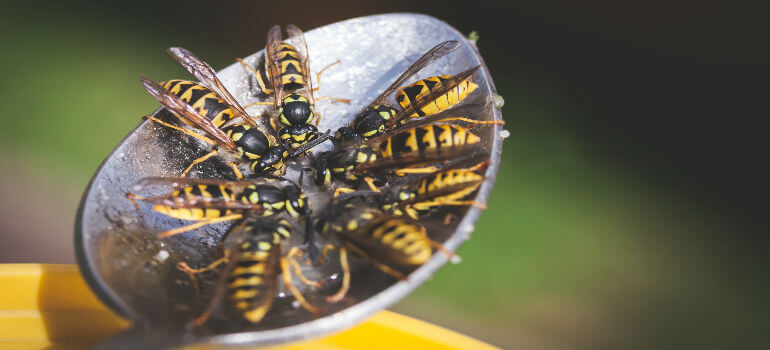
Image source: Sten Roosvald/shutterstock.com
Knowing the differences between bees, wasps, and hornets is essential for insect identification, pest control, and pollinator conservation. These stinging insects have similar habitats, appearances, and behaviors, but each has its own role in the ecosystem.
Table of Contents
How to identify a bee, wasp, or hornet?
They differ significantly in their appearance, behaviour, and nesting habits, which provide clues to determine their identity.
- Bees: Bees, such as honeybees and bumblebees, have rounder bodies covered in tiny hairs that aid in pollen collection. Their colours typically range from golden-yellow to brown, with distinct black stripes. Bees are non-aggressive and focus on pollination and nectar collection. They sting only when provoked and die after stinging due to their barbed stinger.
- Wasps: Wasps are more aggressive and are natural predators, hunting insects for their young. They can sting multiple times due to their smooth stinger. Wasps, including yellowjackets and paper wasps, have slender, smooth bodies with a shiny texture. Their vibrant black and yellow stripes make them easy to spot. They have long legs that dangle while flying. They are not protected, and if you find a wasp nest, you can get it removed by a professional wasp nest treatment service.
- Hornets: Hornets are larger than most bees and wasps, with robust bodies and a more menacing appearance. They often have white or reddish markings, depending on the species, such as the European hornet or the bald-faced hornet. Hornets are highly territorial and will defend their nests aggressively. They also sting repeatedly, delivering a painful venom.
* You should know that bees are protected by law and must NOT be killed. Bee extinction would severely impact biodiversity and food production. If you find a bee’s nest near your home, contact a beekeeper to take it away without hurting the bees.
Bees, wasp and hornet comparison chart
| Bees | Wasps | Hornets | |
|---|---|---|---|
| Round, hairy body; golden-yellow or brown with black stripes | Slender, smooth body; shiny black and yellow stripes | Larger, robust body; black with white or reddish markings | |
| Small to medium (1-2 cm) | Medium (1.5-2.5 cm) | Larger (up to 3.5 cm) | |
| Can sting only once | Can sting multiple times | Can sting multiple times | |
| Non-aggressive; stings only when provoked | Aggressive; territorial and defensive | Highly aggressive, especially near nests | |
| Nectar and pollen (pollinators) | Insects (natural pest controllers), nectar | Predominantly insects, some nectar |
Bee nesting habits, wasp nest vs hornet nest
The nesting habits of bees, wasps, and hornets are crucial to identifying their presence and managing them effectively. Nests are built differently by these insects, reflecting their different habits and ecological roles.
Identifying bee nests
Bees typically construct waxy, hexagonal hives for rearing their young and storing nectar and honey.
- Honeybees form large, organised colonies with hives located in tree hollows, wall cavities, or man-made hives.
- Bumblebees build smaller nests in the ground, abandoned rodent burrows, or dense grass.
- Carpenter bees do not build traditional nests but tunnel into wood to lay eggs.
Bees are less aggressive when near their nests but may sting if threatened.
Wasp nesting behaviour
Wasps create papery nests made from chewed wood fibres mixed with saliva. These nests are often smaller than hornet nests.
- Paper wasps build open-comb nests that hang from single stalks in sheltered locations. Wasps are more defensive of their nests and can sting multiple times if disturbed. Wasps build nest in eaves, attics, tree branches, or in-ground cavities.
- Yellowjackets often nest underground or in concealed areas like wall voids.
Hornet nest characteristics
Hornet nests are larger and more robust versions of wasp nests, made from the same papery material.
- European hornets build nests in hollow trees, barns, or wall voids. Hornets are highly territorial and will aggressively defend their nests if approached. Hornet builds nests in high tree branches, roofs, or outdoor structures.
- Bald-faced hornets construct spherical nests that can grow up to the size of a basketball.
Stings: Bees vs Wasps vs Hornets
When you have an understanding of these differences, you can provide proper first aid and respond better to the potential health risks from stings.
Bee stings
If a bee is out and about in the fields, looking for flowers to gather nectar and pollen, it will most likely mind its own business. There’s nothing to worry about. But if you’re in close proximity to their hive, that’s another story. Bees would vigorously defend their nest from anything they deem a threat.
When a bee stings you, the sting pierces the skin, and the insect injects its venom. In most cases, the stinger gets stuck in the victim’s skin and tears loose from the bee’s abdomen. This is a massive injury for the bee, so it dies. Honey bees are the only bee species that die after stinging. Bee stings aren’t deadly as long as the victim doesn’t have an allergy to the venom.
Wasp sting vs hornet sting
Wasps and hornets sting differently in terms of pain levels, venom potency, and how they affect humans. A wasp sting can be mild to extremely painful, depending on the species, i.e. yellow jackets deliver a stronger sting. Wasp venom contains a mix of toxins designed to immobilise prey and deter threats. It can cause localised swelling, redness, and itching.
Some people may develop severe allergic reactions (anaphylaxis) to wasp venom, requiring immediate medical attention. Common symptoms of wasp sting are burning pain, swelling around the sting, and irritation lasting a few hours to a couple of days.
Hornet sting is more painful than a wasp sting due to the larger size of hornets and higher venom volume. The pain is often described as sharp and lingering. Hornet venom is stronger, with additional toxins that can cause tissue damage and prolonged swelling.
Some species, like the Asian giant hornet, deliver a particularly painful and dangerous sting. Similar to wasps, hornets can sting multiple times. Hornet stings can cause intense pain, significant swelling, redness, and, in some cases, flu-like symptoms such as fever or nausea.
What is the most aggressive, wasp or hornet?
Both are bad in terms of being annoying and scary when they get in your face. Both are aggressive and easily get in defence mode and will attack without much hesitation if they feel threatened, annoyed, or if you’re waving your hands at them.
Their stings are painful and harmful if you’re allergic. Hornet’s sting hurts more than the sting of a bee or a wasp, but it has less venom in it.
On the Schmidt’s Index, a wasp and a hornet stings are equal at level 2 and some species at level 3, and a bee’s sting is at level 1.
Do hornets kill wasps?
Yes, they do. They don’t actively seek them out in order to kill them. But if they meet, the hornet will likely attack the wasp, kill it, and eat it. A single wasp is unlikely to kill a hornet, but a wasp swarm can kill a single hornet and eat it.
How do I keep bees, wasps, and hornets away from my home?
Natural deterrents, habitat modification, and vigilance are all needed to keep bees, wasps, and hornets away from your home. The presence of these insects plays an important ecological role, but you should make sure they don’t pose a threat to your family or yourself.
- Carefully check for cracks, holes, or vents that could serve as entry points for bees, wasps, and hornets. Pay close attention to window frames, doorways, and attic vents. Use caulk or sealant to block any potential openings.
- Wasps and hornets are attracted to food scraps. Make sure your bins are tightly sealed and emptied regularly. Keep areas like patios or BBQ grills free of sugary drinks and food remnants.
- Certain scents can deter bees, wasps, and hornets. Peppermint, citronella, eucalyptus, and tea tree oil are all effective. Mix a few drops with water in a spray bottle and apply around your home, especially near entry points.
- Early detection of nests is key to preventing infestations. Check your home’s eaves, attics, sheds, and trees for nests. If you find a large nest, it’s safer to call a professional pest control service to remove it. Hornets and wasps, especially, can be highly defensive when protecting their nests.
While respecting their importance in the ecosystem, these preventative steps can effectively reduce the chances of encountering bees, wasps, or hornets near your home.
In conclusion
Bees, wasps, and hornets may appear similar at first glance, but their differences in appearance, behavior, and ecological roles are necessary for identification and understanding. The bee is an important pollinator, the wasp is a natural pest controller, and the hornet, while related to wasps, is very aggressive and territorial.

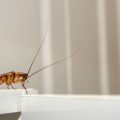


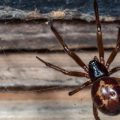
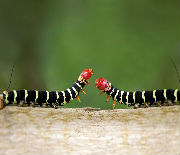
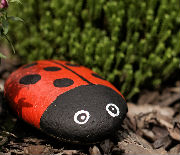
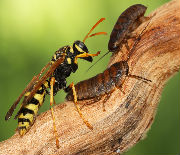
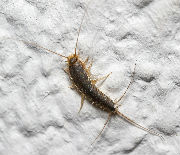
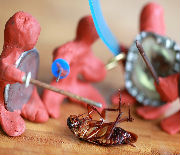
Leave a Reply